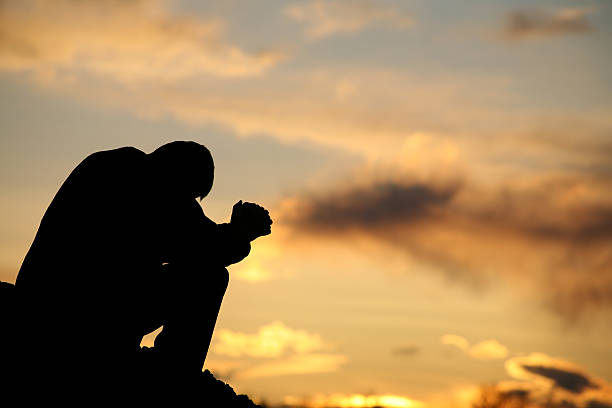There’s a moment most of us know all too well.
Someone challenges something you’ve said. A belief you’ve held. A decision you made. A truth you were certain of. The air stiffens. Your stomach tightens. Your heart rate quickens. Every cell in your body seems to whisper, defend. Your brain rushes to build a case, to find the missing evidence, to twist the facts into a shape that feels safe.
And deep inside, there’s a tiny tremble—the awareness that maybe, just maybe, you were wrong.
But instead of opening that door, you slam it shut. You double down. You change the subject. You argue harder, louder. Anything to avoid the unbearable discomfort of admitting the truth.
Why?
Why is it so excruciating to admit we’re wrong?
It’s not because we’re stubborn by nature. It’s not because we’re weak, or arrogant, or stupid. It’s because being wrong isn’t just a mental mistake—it’s a threat to our very identity. And the brain, when threatened, doesn’t correct. It protects.
The Fragile House of Identity
Every one of us is walking around with a self-story—a fragile architecture of ideas about who we are. I’m a good person. I’m smart. I’m competent. I’m loyal. I’m moral. I’m right.
We don’t just believe these things—we need to believe them. They are the scaffolding of our psychological safety. They tell us we are safe in the world, in our relationships, and in our own skin.
So when we are faced with the possibility that we were wrong—not just factually wrong, but morally, emotionally, or relationally wrong—it’s not a minor correction. It’s a psychic earthquake. A crack in the mirror.
Admitting we’re wrong can feel like confessing that our entire sense of self is unreliable. If I was wrong about this… what else am I wrong about? If I misjudged this person, or voted for that policy, or trusted that memory, then what kind of person am I?
This is the hidden terror: not just that we made a mistake, but that we might be a mistake.
And so we cling. Not to truth, but to coherence.
The Body Reacts Before the Brain Responds
The moment someone tells you you’re wrong, your body reacts before your mind even catches up.
Studies in neuroscience have shown that when we experience cognitive dissonance—a state where our beliefs are challenged by new information—the brain lights up in the same areas that respond to physical pain. The anterior cingulate cortex fires, signaling that something is wrong. The amygdala gets involved, preparing us for emotional defense. And the prefrontal cortex—the part responsible for higher reasoning—often goes offline.
This means that being told you’re wrong literally hurts. It feels like a threat. And your brain’s natural response to a threat is not curiosity—it’s survival. It braces. It attacks. It retreats. It protects the current belief because that belief, however flawed, feels safer than the unknown.
The tragedy is that we believe we are being rational. But in those moments, we are being biological.
Understanding this doesn’t make the feeling disappear. But it does give us permission to respond with compassion instead of shame. You’re not broken for reacting this way. You’re wired that way.
The power lies in what you do next.
Cultural Armor: The Shame of Being Wrong
In many cultures, especially those rooted in high-stakes achievement or perfectionism, being wrong is not just embarrassing—it’s humiliating.
From a young age, we are taught that mistakes are failures. That admitting you were wrong is a weakness. That changing your mind is a betrayal of your past self. We reward certainty, even when it’s unfounded. We punish doubt, even when it’s wise.
This creates a culture of pretending. We’d rather posture with confidence than risk the vulnerability of saying, “I don’t know.” We associate being wrong with being exposed—naked in the public square of opinions, open to ridicule.
And so we develop what psychologists call “identity-protective cognition”—a fancy term for the very human habit of twisting information to protect our self-image. We filter what we hear. We seek out evidence that confirms our views. We dismiss or discredit what contradicts them.
In doing so, we trade truth for comfort.
And we remain stuck in the prison of our own defense.
The Myth of Consistency
There’s a seductive lie we all absorb: that a good person is consistent. That maturity means holding firm. That strength means never changing your mind.
But consistency is not a virtue if it keeps you tied to error. And conviction is not wisdom if it’s based on illusion.
The human mind is not a machine. It’s a living system, designed to grow, adapt, revise. Every day, your cells regenerate. Your memories shift. Your emotions evolve. You are not the same person you were a year ago, a month ago, or even yesterday.
And yet, when it comes to beliefs—especially public ones—we act as if change is betrayal.
But what if change is integrity?
What if admitting you were wrong is the most honest thing you can do?
To say: “I believed something. I lived by it. But I’ve learned more. And now I see things differently.”
That’s not weakness.
That’s evolution.
The Cost of Refusing to Be Wrong
The refusal to be wrong isn’t just a personal problem. It’s a social disease.
History is crowded with tragedies born from the unwillingness to admit error. Wars prolonged. Justice denied. Families destroyed. Scientists ignoring contradictory evidence. Politicians clinging to failed policies. Leaders refusing to apologize, even as lives are lost.
On a smaller scale, we see it in marriages that break from silent pride. In friendships that fracture over an unspoken mistake. In parents who can’t say sorry. In coworkers who can’t admit they overlooked something. In neighbors whose disagreements become decades-long grudges.
The longer we resist being wrong, the higher the price.
And it’s not just others who pay. We pay with our own peace.
Because defending a false belief is exhausting. It drains energy. It creates cognitive strain. It forces you to lie to yourself—and the body always knows when you’re lying.
There is no relief in being right when you’re secretly wrong.
Only more walls. More weight. More distance from your truest self.
The Liberation of Letting Go
But something miraculous happens when you do the unthinkable—when you admit you were wrong.
It feels terrifying at first. Like walking into a storm.
But then… something shifts. The air clears. The pressure lifts. The inner war stops. And in its place, there’s space. Room to grow. Room to connect.
People don’t lose respect for you when you admit you’re wrong. They trust you more. Because they see your humanity. Your humility. Your courage.
Admitting you were wrong is not erasing your past—it’s updating your story.
It says: “I am not a fixed object. I am a work in progress.”
It gives others permission to do the same.
And in that space, real dialogue begins.
Real learning happens.
Real change becomes possible.
The Courage to Be Wrong in Public
Private errors are one thing. But public errors? That’s where shame often grips us most tightly.
Changing your mind in front of others means risking judgment. Losing status. Alienating your group. It can mean rejection or ridicule—especially in a world that rewards hot takes and punishes nuance.
But consider this: some of the most powerful movements in history began when someone said, “I was wrong.”
Doctors who once believed outdated theories revising their views to save lives.
Activists changing tactics when they realized the old ways weren’t working.
Religious leaders shifting interpretations in the light of new understanding.
These changes didn’t signal weakness. They showed wisdom.
To change your mind is not to betray your values. It’s to bring those values into deeper alignment with truth.
Integrity is not never being wrong.
It’s what you do when you realize you were.
The Anatomy of a Genuine Apology
There is a profound kind of beauty in the words, “I was wrong.”
When offered without defense, without excuses, they open the heart. They repair bridges. They make space for healing.
But a real apology does more than say the words. It takes responsibility. It listens to the impact. It does not minimize or justify. It does not hide behind good intentions.
It says: “I see now what I didn’t see before. And I’m willing to learn.”
This kind of admission transforms relationships. It softens hardened places. It makes it safe for others to be honest too.
And sometimes, the person who most needs to hear that apology… is you.
When You Were Wrong About Yourself
Perhaps the hardest errors to admit are not about politics, facts, or arguments—but about yourself.
The times you told yourself you weren’t enough. That you weren’t lovable. That you were too broken, too sensitive, too much. The moments you swallowed lies about your worth, your capacity, your future.
What if you were wrong about those things?
What if you’re still wrong?
And what if that’s the best news you’ll ever hear?
To admit you were wrong about your unworthiness isn’t arrogance.
It’s awakening.
It’s the first step toward reclaiming the truth.
That you were always more than what they said. That you are more than your worst moments. That who you are is not fixed—but unfolding.
And that admitting you were wrong about yourself is the beginning of coming home.
Creating a Culture That Welcomes Error
Imagine a world where being wrong wasn’t a source of shame, but a sign of growth.
Where leaders changed their minds without fear.
Where debates weren’t about winning, but about understanding.
Where families normalized apologies.
Where classrooms encouraged curiosity over correctness.
Where admitting you were wrong was not a confession—but a celebration of learning.
This world is possible. But it begins with us.
With one conversation. One apology. One pause in the middle of an argument to say, “Wait… let me think about that again.”
It begins when we stop worshiping certainty and start valuing truth.
Not the truth that flatters us—but the truth that frees us.
The Most Honest Sentence in the World
“I was wrong.”
It’s only three words.
But in a world built on pride, they are radical.
They carry the weight of history and the lightness of liberation.
They cost your ego everything—and give your soul its voice.
They are the gateway to better conversations, better decisions, better relationships, and better lives.
And the more we say them, the more we remind ourselves:
That being human is not about being right all the time.
It’s about being real.
And being real… is the most powerful truth of all.






